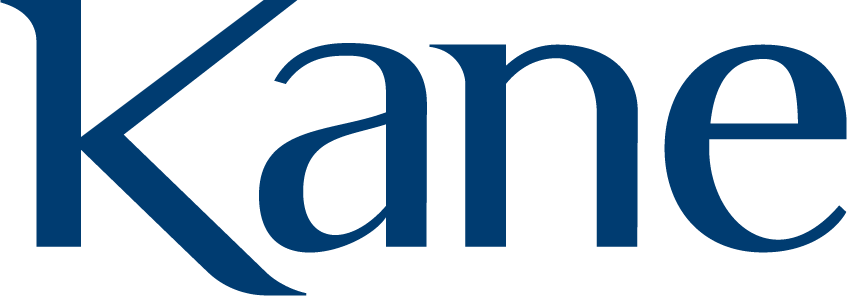Discovery Makes The Difference
Years ago I had a client in the fast-food / fast-casual industry. It was a franchised business so there were more marketing opinions than sandwich options. The firm I worked for was hired to invigorate the long-standing brand and, of course, we recommended research as a first step.
The Power of Research
Fast forward to the completion of executive interviews, franchisee interviews, quantitative consumer surveys, in-depth customer interviews, and regional experiential “secret shopping.” This was a huge and warranted research undertaking that uncovered something so simple, yet so crucial: Why do customers come to these restaurants?
Corporate and franchise leadership said it was the quality of the food ingredients - daily baked bread, fresh fruit and vegetables, quality meats and cheese, brand name condiments, etc. The thinking was, “We have the best ingredients in the business!”
However, the research revealed this was a flawed assumption. People frequented the restaurants at lunchtime as a way to take a break from their hectic day. The quality of the food ingredients was a given in the consumer’s mind. What came to the top as a problem was operational. The menu was so complicated that orders were getting messed up. That customer desire for a small pleasant break in the day was turning into disappointment due to incorrect food orders.
This substantial research study affected many other areas of the business including employee training and communications, restaurant layout and design, packaging, customer offers, and more.
Research can uncover the unexpected and debunk the assumed.
Key Questions To Ask
Circa 1997, I’ll never forget my first day at Stephan & Brady, a long-standing Madison, Wis.-based ad agency. My supervisor said, ”If you’re not doing anything this evening, we’re holding focus groups for our client.” I didn’t get home until after 11 p.m. that day but this early career experience showed me the value and impact of research. It ingrained in me that digging through available data, talking to consumers, and understanding their journey was key to gaining marketing insights.
Past and present, I have seen clients cringe at the word research. Research often gets a bad rap as a time-consuming, budget-sucking endeavor. And, I’ve worked on many in-depth research studies that became a nice, big paperweight on a shelf.
There are four key questions to answer before undertaking research:
What is it you really want/need to know? Keep asking “why” until you get to the heart of the matter. Sometimes you have to dig deep beyond the superficial question.
What’s the best method of research for the question at hand? If you need statistical information, you need quantitative research. If you want brand perceptions, consider qualitative methods. If budget’s an issue, think of other ways that secondary data / research and select interviews could be used.
Who are the right people to talk to? I have found it best to investigate both the internal and external perspectives to determine if there is a disparity between audiences.
What are the desired actions wanted from the research? Until you have findings, this may be a difficult question to answer. But, anticipating (or dreaming?) about steps to make resolutions and improvement will lead you on a path to action.
Born Out of Discovery
Kane Communications Group was created based on the concepts of discovery and using communications to solve business problems. Back in 2013, Kimberly Kane’s first client came to her with what they considered an operational problem.
A national moving and storage company faced nearly $1 million in workers’ compensation claims which triggered an OSHA investigation, fines and the threat of losing their business insurance. The company worked with a healthcare system to bring in onsite nurses to help with employee health screenings and injury prevention, but employees weren’t using the free services and the claims continued.
Through in-depth leadership interviews and employee group discussions, Kane proposed a branded health and safety program that included an employee-led committee to gain internal buy-in. Within nine months of the program’s inception, worker’s compensation claims were reduced. Overall, the company went on to prioritize internal communications to engage all employees in business operations.
The Discovery Difference
At Kane, we begin every client relationship, campaign, and project with a “discovery” phase. We don’t do research just for research's sake but use our findings to inform our recommendations. We determine the methodology based on the problem at hand and take into account our clients’ budget resources.
Read on for examples that show the difference Kane discovery made for some of our clients::
An insurance client was introducing a new product via a new sales channel. Kane conducted external in-depth interviews with past purchasers of similar products to determine purchase motivations, selection criteria, and barriers. The findings helped Kane to develop key messages and consumer personas for our advertising campaign.
An incoming CEO realized that company culture and employee morale needed a refresh but company leadership couldn’t pinpoint the issue. Kane designed and implemented an employee satisfaction survey that informed a new “rallying cry” for the organization along with new channels and programs for employee engagement.
Although a client updated its digital properties on a regular basis, a Kane website audit revealed a significant number of serious structural problems that were negatively impacting search engines from Google. The company was being penalized due to bad title tags, duplicate pages and other issues which we were able to correct quickly.
The Bottom Line
Research shouldn’t be looked at as extravagant, and it doesn’t always have to be extremely costly. But discovery can definitely be a game-changer!
Kane is ready to assess your business problem and work with you to develop a discovery plan to inform communications solutions. Contact us!

